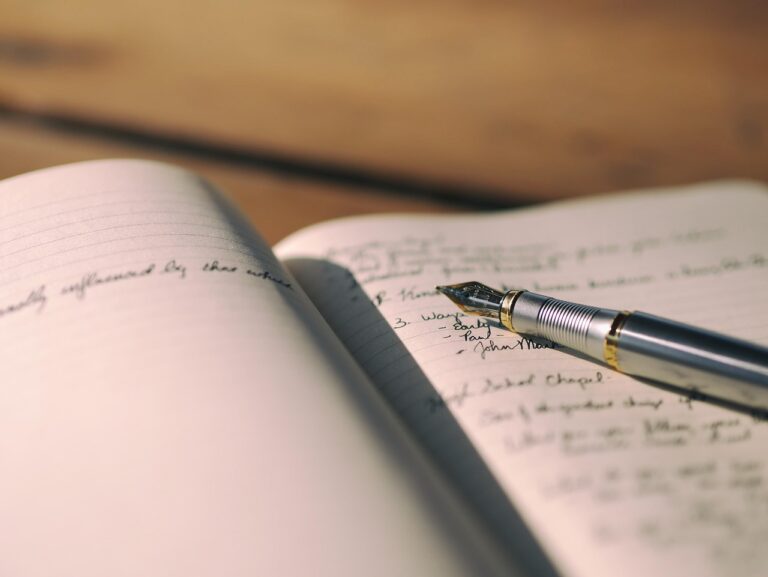What are the Benefits of Journaling for Martial Arts Practitioners?
- Track Progress: Journaling allows martial artists to document their skills development, noting improvements and areas for growth.
- Reflect on Techniques: Writing about daily training sessions helps analyse techniques learned, challenges faced, and moments of success.
- Mental Focus: Journaling can enhance mindfulness, a key element in martial arts, by promoting mental clarity and focus.
- Emotional Control: Martial arts often require emotional discipline; journaling helps process frustration, anxiety, or excitement from training.
- Goal Setting: Write down short-term and long-term goals, such as mastering a new move, earning a belt, or improving stamina.
- Record Sparring Experiences: Keep track of sparring sessions, noting strategies used, strengths, and weaknesses for future improvement.
How Martial Arts Instructors Can Use Journaling
- Evaluate Student Progress: Instructors can journal about each student’s performance, challenges, and development over time.
- Reflect on Teaching Methods: Instructors can reflect on what teaching techniques worked well and what needs adjusting to improve the learning experience.
- Create Customized Training Plans: By reviewing student journals or keeping their own, instructors can design personalized training schedules based on each student’s needs.
- Personal Growth: Instructors can use journaling as a tool for their own development, reflecting on their journey in martial arts and how they can be better leaders.
Types of Martial Arts Journals
- Training Log: Document each practice session, including the techniques practiced, time spent, and any insights gained.
- Sparring Journal: Record sparring matches, focusing on what worked, what didn’t, and how you felt during the session.
- Goal-Oriented Journal: Set goals for each training cycle (e.g., “Increase flexibility,” “Improve footwork,” “Earn next belt”), and track progress.
- Reflection Journal: After each class or session, reflect on what you learned, any breakthroughs, struggles, and your emotional state.
Incorporating Martial Arts Philosophy into Journaling
- Mindfulness: Just as martial arts emphasize living in the moment, journaling can encourage mindfulness by focusing on the present.
- Discipline: Journaling helps martial artists maintain discipline by committing to regular writing, much like committing to daily practice.
- Resilience: Writing about challenges faced in training or competition can build mental toughness and perseverance.
- Respect: Martial arts often teach respect for others; journaling about interactions with fellow practitioners or instructors can reinforce this value.
Journaling for Self-Improvement in Martial Arts
- Daily Reflections: Write about your experiences after each class or training session, including what you learned, how you felt, and what you’d like to improve.
- Visualization: Use your journal for mental preparation. Visualize techniques, sparring scenarios, or competitions, and write about how you would approach them.
- Emotional Check-In: Martial arts can evoke strong emotions; journaling helps process frustration or pride and fosters emotional control.
- Post-Competition Reflections: After tournaments or matches, journaling helps assess performance, identify strengths, and pinpoint areas to refine.
How Journaling Enhances Martial Arts Instruction
- Track Student Development: Instructors can track the growth of individual students, noting their improvements and challenges, which helps in providing personalized feedback.
- Self-Assessment: Instructors can use journaling to assess their teaching methods, adjust their approach, and continue to grow as educators.
- Goal Tracking: By setting goals for their students and themselves, martial arts instructors can keep track of achievements and milestones.
Why Martial Artists Should Journal
- Self-Discipline: Journaling encourages a consistent, disciplined approach to both training and personal growth.
- Mental Clarity: Martial arts require mental focus and clarity, and journaling helps clear distractions, sharpen concentration, and promote self-awareness.
- Reinforce Techniques: Writing about techniques you’ve learned reinforces muscle memory and comprehension, leading to faster mastery.
- Foster Motivation: By writing down your accomplishments and goals, journaling can help boost motivation, especially during challenging times.
Journaling is a great tool to complement martial arts training, whether you’re a student or an instructor. It enhances physical practice with mental reflection, helping individuals stay focused, disciplined, and connected to their personal martial arts journey.
Compiled By Shidoin Joe Glavin 2025



